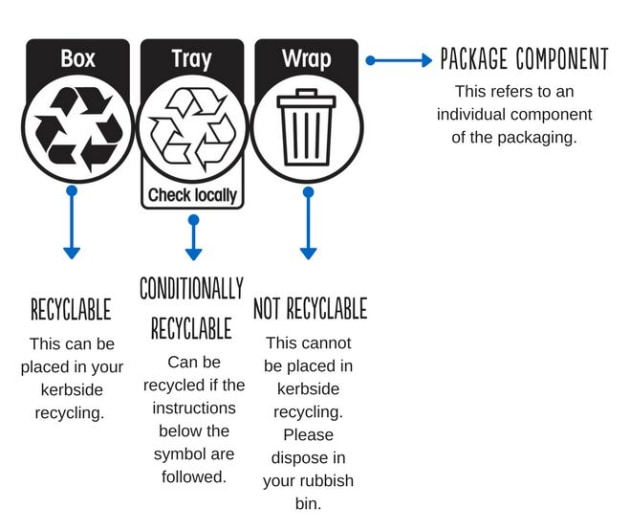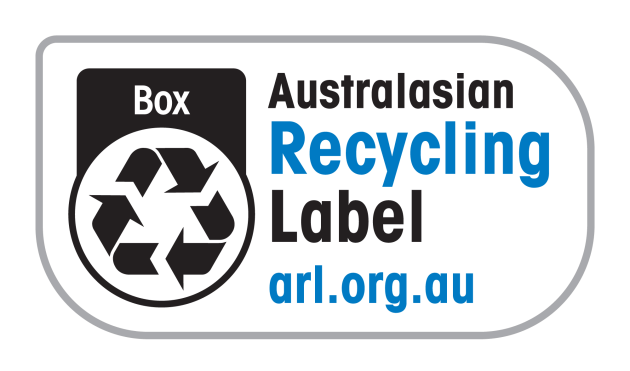As more consumers ask questions about the sustainability of packaging, greater numbers of companies are following suit with on-pack symbolism showing clear recycling information.
However, until now, it has only been larger companies such as Woolworths, Blackmores, Nestlé, Officeworks, and Unilever who've had the resources to test the recyclability status of their packaging and deliver on such labelling.
This week, the Australian Packaging Covenant Organisation (APCO) launched a new national product labelling scheme aimed at helping consumers better understand recyclability and addressing Australia’s critical waste issues.
APCO CEO Brooke Donnelly (below), who took over the role in September, told PKN the label would lead to greater transparency within the industry.
The Australian Recycling Label (ARL) is a joint initiative between Planet Ark and PREP Design, which have both offered tools in the past to communicate recycling on-pack.
Planet Ark has already been offering the ARL with easy-to-understand recycling information, while the PREP Design tool is an online packaging recyclability evaluation portal developed by Planet Ark and GreenChip back in 2014 to reduce consumer confusion.
The difference now is that all of the APCO's 900-plus members can be part of a voluntary national program which enables them to access resources surrounding labelling, whether their company is large or small.
“Ultimately, our objective is to increase the recycling rate of packaging and deliver a program anyone can access,” Donnelly says.
“We looked at various ways we could deliver the program to members, and we identified that both PREP and Planet Ark both had great programs that have been tested; so we were confident in their capabilities.
“This, however, is truly a national program that's available to every member of the APCO, and is implemented in a voluntary capacity rather than having it mandated.
“For the first time they can assess their packaging format in detail and make an informed decision about what they will do to make it more sustainable."
The majority of APCO members are smaller businesses, which will now have the opportunity to test the sustainability status of their packaging format.
“If [the PREP online tool] comes back and says it's not recyclable, they can try other materials until it is,” she says.
Clarity for consumers
There have been many symbols that have demonstrated recyclability in the past, with the Mobius Loop the most recognisable.
From now on, there will be only one recognisable, consistent image which shows clearly whether the package can be recycled at kerbside, and so on.
The APCO will work with Planet Ark to deliver a consumer education program while educating businesses about their options.
“It's very much an evolution, and there's a lot of work to be done,” Donnelly says.
“The aim so far has been to make visible our contraints so we can work towards a circular approach.”
There's no mandatory symbol – this is purely voluntary – but businesses now have the chance to – slowly - implement the label, which of course involves changing their artwork on-pack.
“The resources are there for them, but there isn't the pressure of a mandatory program,” she says.
“We'll work with the members closely and provide appropriate guides, training, and capacity building sessions.”
Donnelly says engagement from members has so far been “phenomenal”.
“The biggest organisations are very much leading the way, so it will take off very quickly,” she says.
How much do Aussies recycle?
In its recent annual report, the APCO revealed packaging recycling rates in Australia currently stood at 31.1 per cent, slightly up from the previous year.
“We've seen improvements, but we're looking to drive that number up much further,” Donnelly says.
“Everything that drives the rate up is ultimately reducing the amount of packaging that goes to landfill.”
The commercial arrangements for the scheme are now all in place, with an official launch planned for mid-July.
However, the APCO is already starting to implement the program and make it available, with Woolworths its first adopter back in November.
“It's a fantastic program, and it's really going to result in positive changes for our country,” she says.










